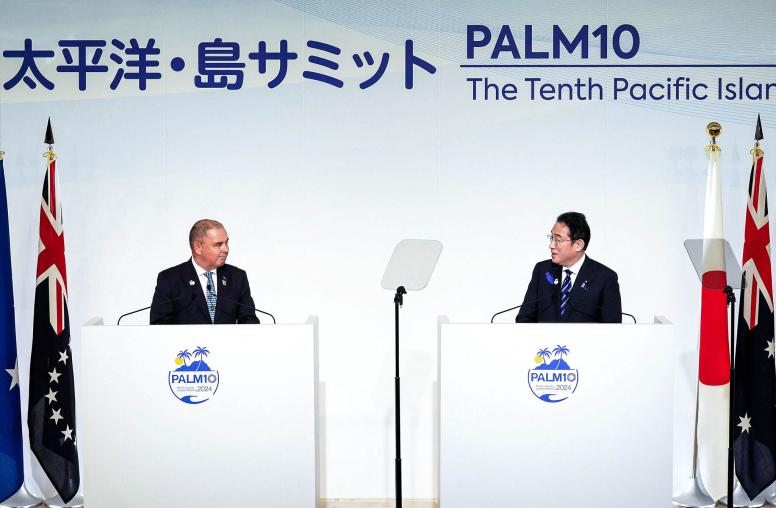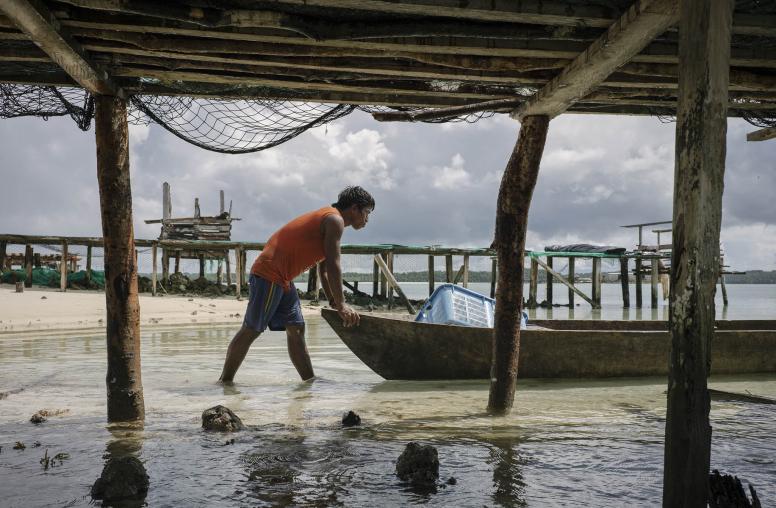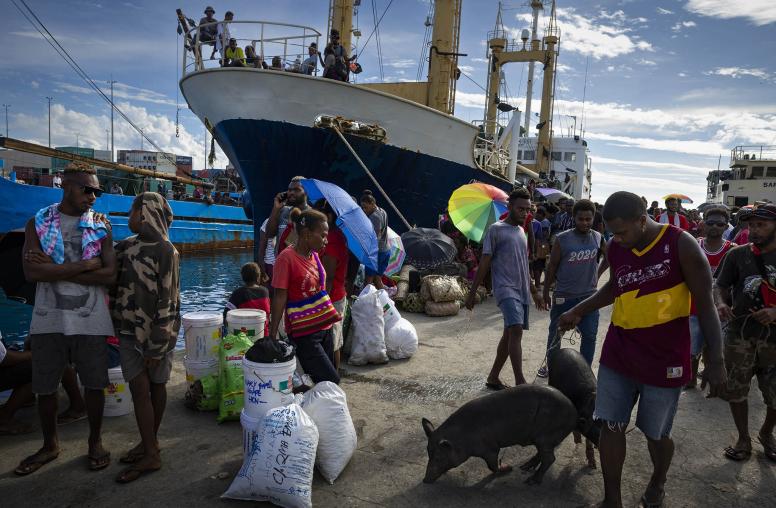Truth Commission: Solomon Islands
Truth Commission: Truth and Reconciliation Commission
Duration: April 29, 2009 (date of inauguration); January 15, 2010 (start of operations) – 2011 (expected). Extensions by the Prime Minister are possible, but limited to one year.
Charter: Truth and Reconciliation Commission Act 2008 (No. 5 of 2008)
Commissioners: 5
Report: Not yet issued
Truth Commission: Truth and Reconciliation Commission (TRC)
Dates of Operation: April 29, 2009 (date of inauguration); January 15, 2010 (start of operations) – 2011 (expected). Extensions by the Prime Minister are possible, but limited to one year.
Background: Discord in Solomon Islands reached heightened levels in 1998, when longstanding disagreements and discontent led to a civil war. Violent clashes took place between the Malaita Eagle Force (MEF) – fighting for the Malaitan settlers on Guadalcanal – and the Isatabu Freedom Movement (IFM) claiming to represent the indigenous residents of the island. The violent struggle for political power, land, jobs, and status led to at least 100 deaths and an estimated 20,000 displaced persons. The Townsville Peace Agreement was signed in 2000, but failed to prevent continued unrest. In 2003, the violence was quelled by peacekeepers from the Regional Assistance Mission to Solomon Islands (RAMSI), who continue to operate with the consent of the government of Solomon Islands.
In August 2008, Shemuel Sam Iduri, Minister for National Unity, Reconciliation and Peace, introduced a Truth and Reconciliation Commission Bill to Parliament. On April 29, 2009, the TRC was formally inaugurated in the presence of Archbishop Desmond Tutu. The first public hearings began in March 2010 and are planned to take place throughout the country.
Charter: The Truth and Reconciliation Commission Act 2008 (No. 5 of 2008) was passed by the National Parliament on August 28, 2008.
Mandate: The objects of the commission are to promote national unity and reconciliation. The commission is tasked to engage stakeholders in reconciliation, and to examine the nature, antecedents, root causes, responsibility for, and the extent of the impact on human rights violations or abuses which occurred between January 1, 1998 and July 23, 2003. In addition, the commission shall recommend measures to prevent such events from reoccurring in the future.
Commissioners and Structure: The commission consists of five members, three nationals of Solomon Islands and two internationals. The commission has three male and two female members, and it is chaired by Father Sam Ata. The members were appointed by the Prime Minister on the recommendation of the National Selection Committee, composed of the Chief Justice and representatives of the government, the opposition, the churches, the Ministry of Provincial Government, the Solomon Islands Christian Association Federation of Women, and traditional leaders. The international commissioners were recommended by the United Nations High Commission for Human Rights.
Report: The Commission is tasked to submit a report of its work to the Prime Minister at the end of its operation. The Truth and Reconciliation Commission Act 2008 stipulates that the Prime Minister shall present the report before Parliament and ensure its availability to the public. The commission's website currently has intermediary reports on public hearings.
Developments:
Prosecutions
- As the TRC has not yet completed its work, no prosecutions have resulted from the commission as of mid-2010. Information collected by the TRC will not be available to investigation and prosecution authorities: The commission’s mandate stipulates that any person shall be permitted to provide information to the Commission on a confidential basis and the Commission shall not be compelled to disclose any information given to it in confidence. No statement, written or oral, made by any person before the Commission shall be admissible against the person in any action, suit or proceeding. In 2000 and in 2001, prior to the outbreak of widespread violence and before the formation ofhte TRC, the National Parliament enacted two Acts granting conditional amnesty to persons who may have otherwise been liable to criminal prosecution. Until now, only a handful of amnesties have been granted and the judiciary has conducted several dozen so-called 'tension trials' for crimes committed from 1998 to 2003. These trials led to a number of convictions, including militia leaders, mostly for murder charges.
Reforms
- After the commission completes its work, the government “shall as far as practicable implement the recommendations of the report,” according to the commission’s mandate. In addition, the government must appoint a person or a body to monitor the implementation of the recommendations. This person or body shall submit quarterly reports to the Cabinet summarizing the steps that have been taken towards implementation of the recommendations of the Commission.
Sources:
- Amnesty International. Solomon Islands: Truth and Reconciliation Commission cannot work in isolation, April 30, 2009.(accessed June 14, 2009).
- ABC Radio Australia. Solomon Islands Truth and Reconciliation Commission members named, April 27, 2009. Available at http://www.radioaustralia.net.au/pacbeat/stories/200904/s2553738.htm (accessed June 14, 2009).
- The Good News South Africa. Tutu to set up TRC on Solomon Islands, February 11, 2009. (accessed June 14, 2009).
- International Center for Transitional Justice. "Solomon Islands." Available at http://ictj.org/our-work/regions-and-countries/solomon-islands (accessed May 12, 2011).
- Solomon Times Online. Topic: Truth and Reconciliation Commission, June 4, 2009. Available at http://www.solomontimes.com/topic.aspx?show=319 (accessed June 14, 2009).
- UN News Center. Nobel laureate launches UN-backed truth commission in Solomon Islands, April 28, 2009. Available at http://www.un.org/apps/news/story.asp?NewsID=30626&Cr=undp&Cr1= (accessed June 14, 2009).



